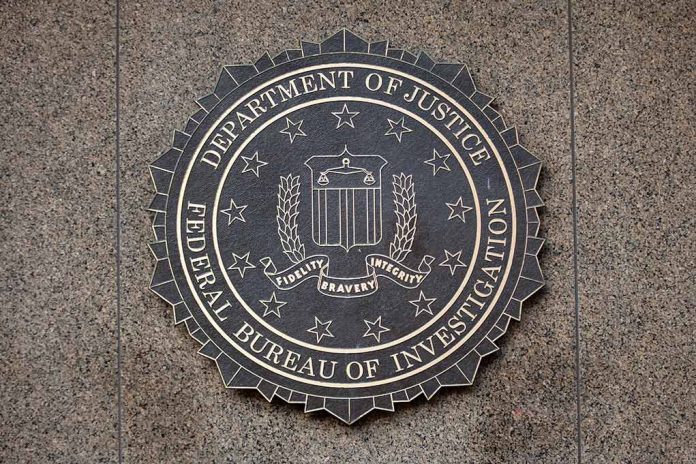
As Election Day approaches, the FBI issues a stark warning about the surge in election fraud schemes, urging voters to remain vigilant.
At a Glance
- The FBI warns of increasing election fraud schemes as voting day nears
- Misinformation and conspiracy theories are flooding social media platforms
- The Justice Department emphasizes efforts to protect voter rights and access
- Voters are advised to report any suspicious activities to authorities
- Tech companies’ inadequate moderation has exacerbated the spread of election-related conspiracy theories
FBI Sounds the Alarm on Election Fraud Schemes
The Federal Bureau of Investigation has issued a critical warning to voters about the increasing threat of fraudulent schemes related to the upcoming election. As the nation prepares to cast its ballots, malicious actors are ramping up efforts to spread false information, conduct phishing attacks, and employ deceitful tactics designed to sway voter decision-making or obtain sensitive personal information.
The urgency of this situation calls for heightened public awareness. Voters are urged to verify information before trusting it and to swiftly report any dubious activities to authorities to ensure the election’s fairness and integrity.
Misinformation Floods Social Media Platforms
A concerning trend has emerged as election denial movements grow and organize to spread conspiracy theories about voting fraud. Social media platforms like X, Instagram, and Facebook have become breeding grounds for false narratives, with right-wing networks, the Trump campaign, and even foreign propaganda pushing these misleading claims.
The situation is further complicated by the fact that many social media platforms have largely stopped moderating disinformation, making it increasingly difficult to track and counteract false claims.
🚨Warning from FBI and CISA🚨
Foreign threat actors are projecting false news and manipulative narratives across the media related to the 2024 election. Tension is high during these last two weeks before a crucial national event. Be attentive and ensure the legitimacy of your… pic.twitter.com/bVgZvPAfc3
— Defend Edge (@DefendEdge) October 24, 2024
Justice Department Emphasizes Voter Protection
In response to these growing threats, the U.S. Justice Department is doubling down on efforts to protect voter access as early voting continues. The department is focusing on three key areas: protecting voting rights, prosecuting election crimes, and securing elections to maintain public confidence in the democratic system.
“Protecting the right to vote, prosecuting election crimes, and securing our elections are all essential to maintaining the confidence of all Americans in our democratic system of government,” states the Justice Department.
Voters are strongly advised to report any violence, threats, or intimidation at polling places to local authorities and then to the Justice Department. The Civil Rights Division is tasked with enforcing compliance with federal statutes that protect voting rights and prohibit voter intimidation and discriminatory election practices.
Staying Vigilant: How Voters Can Protect Themselves
As election day approaches, it’s crucial for voters to remain cautious and informed. The FBI advises citizens to be wary of unsolicited emails, text messages, or phone calls asking for personal information related to voting. Voters should always verify the source of any election-related information and use official government websites to check their registration status and polling locations.
It’s also important to be aware of potential physical threats. Incidents of voter intimidation and potential election disruptions have been reported, including ballot box fires in Washington and Oregon, and misleading signs in North Carolina. Voters should remain alert and report any suspicious activities immediately.
As we navigate this complex information landscape, it’s more important than ever for voters to stay informed, verify sources, and report any suspicious activities. By remaining vigilant, we can all play a part in safeguarding the integrity of our democratic process.
Sources:
Election Fraud Conspiracy Theories Are Already Thriving Online
U.S. Justice Department stresses protection of voters’ rights
Ballot drop boxes, long a target of misinformation, face physical threats













